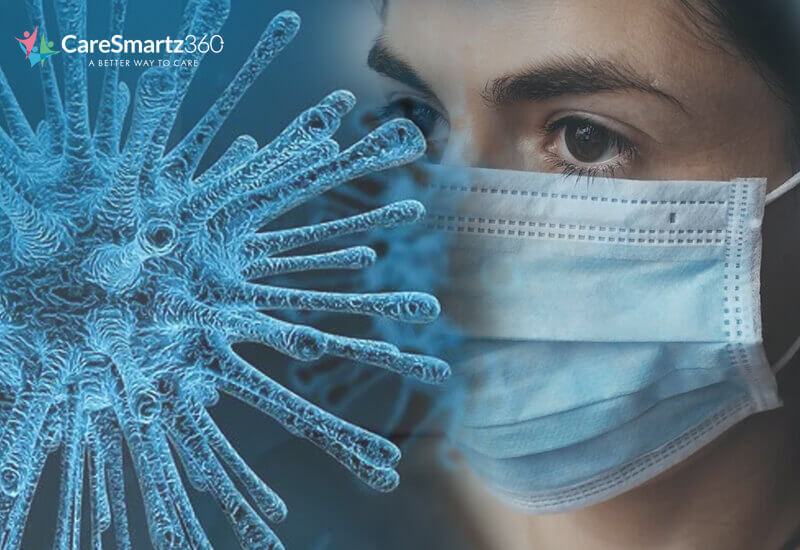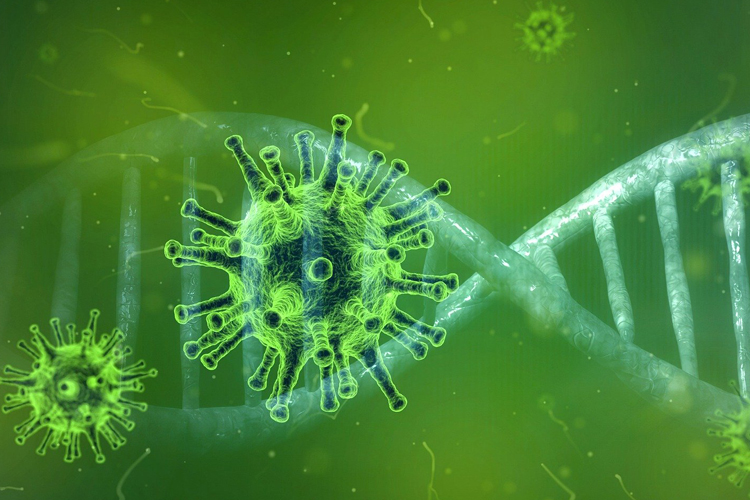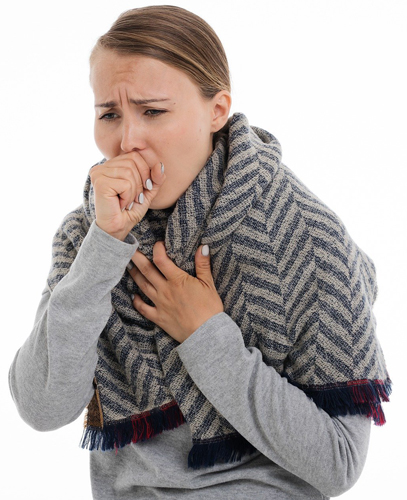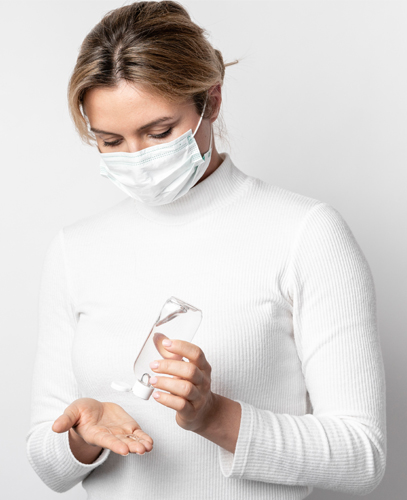Corona Virus: Everything that Seniors and Caregivers Need to Know

The trending news these days revolves around the novel coronavirus. While there’s no need to panic, it is crucial to understand the measures that help in preventing this disease, especially in elderly adults.
Coronavirus has already spread to diverse areas of the United States and other countries in the past couple of months.
The virus, SARS-CoV-2 or coronavirus, was initially detected in Wuhan, China in 2019 and has spread to several other countries since that time. According to the Centers for Disease Control and Prevention (CDC), the virus has been detected in over 70 countries as of the beginning of March 2020, including the U.S. You may have heard of different terms used around this outbreak. To break it down, the virus is called “SARS-CoV-2,” and the disease it causes is called “coronavirus disease 2019” (“COVID-19”).
The common symptoms of coronavirus include cough, fever, and shortness of breath. As the coronavirus hails from the family of viruses leading to the common cold, it’s estimated that healthier adults and children would recover from the illness on their own. As with many viruses, it is transmitted from one individual to another, so some preventive measures must be considered to avoid exposure to this disease.
There’s currently no vaccine available to protect an individual from COVID-19 and no current medications are available to cure the ailment. A vaccine is under development, and the US government is recruiting volunteers for a coronavirus vaccine trial.
There are several questions and misconceptions revolving around coronavirus, and here is detailed information about the ailment, its prevention tips for elderly & caregivers, and other related information.
What is Coronavirus?
Coronavirus, a family member of viruses, could lead to different symptoms that may range from the common cold to Severe Acute Respiratory Syndrome (SARS) and even Middle East Respiratory Syndrome (MARS).

Since the virus has a greater mortality rate when compared to similar viruses, it is crucial for individuals to take appropriate measures.
How Coronavirus Spreads
Close contact with an infected person or through respiratory droplets that are produced whenever the person sneezes or coughs leads to its transmission.
What leads to infection is when droplets are created from coughing or sneezing, they are either directly inhaled through the mouth or nose of a healthier individual or indirectly brought to their mouth or nose via a surface that was contaminated. When infected individuals don’t cover their mouths while coughing or sneezing, it increases the chances of contamination.
To help combat the spread, the US government has taken strict measures surrounding international travel. The US government has already suspended the entry of foreigners that have been to China in the last 14 days.
Moreover, the US residents or citizens who have been in diverse parts of China are allowed to enter the US but only with adequate health monitoring and quarantine for 14 days.
What are its Symptoms?
The most common flu-like symptoms of coronavirus include:

- Fever
- Cough
- Shortness of breath
Apart from the most common symptoms, headache, feverish feeling, muscle cramps, and body aches are also seen in some patients. Medical practitioners claim that the symptoms may range from mild to severe and may include shortness of breath, which may indicate a serious form of the ailment.
People witnessing or experiencing any of the above-mentioned symptoms, along with a travel history to the affected area, should consult their doctor immediately.
Who are at a Higher Risk?
As per current reports, most of the reported cases of COVID-19 have been in adults. At the same time, the majority of reported child infections have been mild, which suggests that children aren’t as susceptible.
The ones that are at a higher risk:
- People with close contact with infected individuals
- Individuals caring for those with coronavirus
- People working in nursing homes, involved in elderly care, and workers in hospice
- Elderly individuals with low immunity
- Individuals with lower immunity from other conditions or diseases
- People who recently traveled to or from a country with coronavirus outbreak
What Precautions should one take?
“Maintaining hand hygiene is essential to avoid this virus,” says medical practitioners treating infected individuals. It should be noted that individuals should properly wash their hands with soap for a minimum of 20 seconds.
Also, an alcohol-based hand sanitizer could be effective in killing microbes before you eat or drink. The same should be considered after going to the bathroom, which decreases the chance of infection.
Here are some important safety measures that everyone should follow:
- Avoid handshaking, especially with those suspected of being sick
- Avoid traveling to hospitals, nursing homes, or hospice care centers unless it’s very important
- Avoid handrails
- Cover your face with a mask while going out in public only if you suspect you may be sick
- Properly wash your hands for at least 20 seconds with soap after you get home, before you eat, after blowing your nose or after using the washroom
- Cover your mouth while sneezing and coughing
- Avoid touching your mouth, nose, and eyes without washing your hands
- Carry hand sanitizer and use after touching any surface that may be contaminated
Why Seniors are at a Higher Risk
Weak Immune System
The elderly, when compared to young individuals, have a lower immune system able to fight against microbes, which is the primary reason why elderly individuals are at a higher risk.
Children and teenagers typically have good immune systems, which helps their body fight against these microbes.
Chronic Health Conditions
Since aging leads to severe chronic ailments, the risk of getting infected by a virus or the flu also increases. People with severe respiratory ailments, along with diabetes, are also considered to be at a higher risk.
Many medications that are prescribed to the elderly or those with chronic health conditions may also lead to the weakening of the body’s defense system, which again contributes to enhancing the risk.
Role of Caregivers
Since caregivers are the ones who are closely monitoring the overall health and well-being of the elderly or individuals ill, it is essential for them to understand the situation. Whether an individual is delivering care as a professional or a family member, adequate precautions must be their priority.
How to Prevent Coronavirus in Adults
Caregivers can be a game-changer in preventing a medical condition like coronavirus when using measures such as those listed below:
How to Care for Adults with Coronavirus
We have talked about the preventive measures for coronavirus. Now, have a look at what is associated with caring for someone with the coronavirus who is stable enough to receive care at home:

Be aware of the surroundings: It is important to monitor the surroundings of an individual and ensuring adequate sanitization if there’s any suspect who sneezes or coughs.
Maintain social distancing: Caregivers need to understand that the less the elderly socialize, the less the chance of infection. If the elderly feel they must socialize, consider introducing them to virtual socialization, such as video calls.
Avoid public transportation: Unless it is an emergency, avoid public transportation. Follow the hygiene-related tips as mentioned above if it is unavoidable.
Use a facemask: It is recommended that caregivers cover their faces when treating those suspected of the disease. As of early March, the CDC does not recommend that those who are well-using facemasks unless working as a health care provider.
Avoid unnecessary travel: It is crucial for caregivers caring for those with chronic ailments to avoid transporting their charges unless necessary.
Ensure proper nutrition and hydration: Dehydration is perhaps the most overlooked aspect that may lead to severe infection in adults. Since many adults aren’t frequently thirsty, it is the responsibility of the caregiver to ensure adequate hydration at regular intervals. Also, a nutritional diet containing high antioxidants is essential for improving immunity.
Maintaining physical activity: Make sure to engage your charges in physical activities rather than isolating them in their room. This helps improve blood circulation, which further helps in clearing mucus from the body.
Conclusion
Coronavirus can be prevented and can be treated with some precautionary measures. It is important not to panic if you witness the symptoms. Contact a medical professional for diagnoses and follow the instructions of the doctor.
The above information helps caregivers ensure adequate care for adults with coronavirus. It is important to pay equal attention to the symptoms and preventive measures while delivering care.
Source:
Disclaimer: The information provided here is collected from various sources including the Centers for Disease Control and Prevention (CDC) and is for informative purposes only. It should not be used for patient treatment as the information offered here do not necessarily reflect the personal opinion of the editor or publisher. The symptoms mentioned here may vary and it is strongly recommended to seek medical attention if you are facing similar symptoms.

